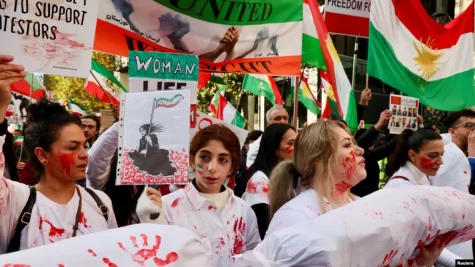Ebola Strikes DFW Area
Deadly virus causes fear over health
You have most likely heard that the latest medical crisis—Ebola, which swept across West Africa, killing thousands of people in its wake, has made its way to Dallas.
In late September, the United Airlines plane that landed in Dallas transported more than just people and luggage into Texas. The jet unknowingly brought Ebola into the United States, setting off a nationwide panic.
Thomas Duncan, who had traveled from Liberia to the U.S. to visit his family, had inadvertently contracted Ebola in his home country before his trip to Dallas. When Duncan later became the first person in the United States to be diagnosed with the deadly disease, the medical experts who had assured the public that the virus would stay contained in Africa were proven wrong, and the public began to fear an outbreak like the one that crippled Liberia, Guinea and Sierra Leone. U.S. residents’ fears grew after Duncan was pronounced dead on Oct. 8, and it was announced on Oct. 12 that a hospital worker who had helped care for the Liberian patient had contracted Ebola. Three days later, a second hospital worker who cared for Duncan was diagnosed with the disease.
The ease in which Duncan made his way from Liberia, one of the countries hardest-hit by the disease, into the United States and the diagnosis of a second victim in Texas has opened many questions about how prepared our country and health system are to deal with the virus. In light of those blunders, major airports and the government are taking measures to further protect Americans from infection.
Five airports (John F. Kennedy International, Newark Liberty International, Washington Dulles, Chicago O’Hare and Hartsfield-Jackson Atlanta International) have bolstered their passenger screening program. These airports, which receive over 90 percent of travelers arriving from Liberia, Guinea and Sierra Leone, have begun to take the temperatures of passengers from those three countries. Passengers flying in from those specific countries must also answer questions to determine whether or not they have been in contact with individuals infected with Ebola. If anything comes up, a Centers for Disease Control and Prevention (CDC) public health officer will evaluate the passenger and decide whether or not he or she needs to be taken to a hospital.
The second Dallas case has also brought up questions on how effective U.S. infection control procedures are. Despite her use of protective gear, the nurse somehow encountered a lapse in protocol which then resulted in her contraction of the disease. Health officials are further examining the case to find this breach in protocol and hospital leaders in Dallas have been making sure that the CDC guidelines are being followed. Further measures are being taken at a national level—President Obama has the federal health authorities looking at our nation’s healthcare facilities to make sure that they are properly prepared to deal with any more Ebola cases.
Furthermore, health experts are arguing that Ebola can be effectively controlled in order to prevent an outbreak similar to that of West Africa’s. As long as hospitals follow basic procedures, including proper use of protective clothing and strict quarantine of Ebola patients, the disease’s spread should be hindered. The international aid group, Doctors Without Borders, is an example of the effectiveness of these procedures. The group, which has assisted in Africa with the Ebola outbreak, has, for the most part, protected its workers and credits this success to their strict protocol. Medical response has also prevented a massive outbreak in Nigeria and, despite its proximity to the disease-ravaged West Africa, the country has remained relatively Ebola-free, with less than 100 cases.
U.S. residents are also more aware of how the disease spreads (through direct contact with the bodily fluids of an infected person) and can thus take greater precautions to prevent any possible transmission of the virus. With the beefed-up prevention measures in place and greater medical awareness, the chances of an Ebola outbreak in the United States are very slim.
Your donation will support the student journalists of Plano West Senior High School. Your contribution will allow us to purchase equipment and cover our annual website hosting costs.

Catie Tsai is a senior, the Vice President of Quill and Scroll Honor Society and the Co-Editor-in-Chief of the 2014-2015 Plano West BluePrints newspaper....







